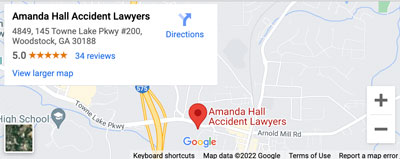What Is Personal Injury Law?
What You Should Know About Personal Injury Law
At some or other, you may find yourself either filing a personal injury lawsuit or defending yourself against such a lawsuit. If you aren’t familiar with the world of personal injury law, this situation can seem confusing, unsettling or intimidating. Here are some primary points of injury injury law to help you navigate the necessary processes and procedures more confidently and successfully.
Personal Injury Law Defined
Personal injury covers issues related to injuries inflicted on a person’s body. This focus differentiates it from other types of litigation that might involve damage to someone’s property or reputation. the injury inflicted may be physical, mental, emotional, financial, or any combination of the above. Many individuals file personal injury lawsuits after discovering that they cannot achieve proper compensation for their losses through insurance claims or other means.
Types of Personal Injuries
Personal injury covers a wide range of injury types and scenarios. Common examples include:
- Automobile accident injuries
- Wrongful death due to negligence or dangerous working conditions
- Slip-and-fall accidents or other workplace injuries
- Various forms of assault, including sexual assault and assault and battery
- Injury caused by defective products
- Medical malpractice
Personal Injury Damages
An individual who has suffered a personal injury may have the right to request multiple kinds of damages due to hardships caused by the injury. For example, accident injury sufferers may be faced with enormous medical bills, not only for past treatment but for ongoing care. They may also have lost substantial wages or the ability to earn a wage going forward. Their lawsuit may demand financial compensation for these losses.
Personal injury damages can also take a less tangible form. You may have reason to seek financial compensation for your pain and suffering, for instance, or for the destruction of your quality of life. You might even have grounds to sue on the grounds of consortium, the loss of family or marital relations. Your attorney can help you figure out exactly what kinds of damages you should request and what dollar amounts those damages should assume.
Determination of Liability
The determination of liability can make all the difference between the full award of damages, no damages at all, or some in-between compromise number. Personal injury lawsuits generally require the plaintiff (the person bringing the lawsuit) to show that the defendant (the person or entity being sued) caused the injury either directly or through inaction, negligence, incompetence, or other faulty behaviors.
Different states have different laws regarding how they assign or distribute liability. In a state that upholds the principle of contributory negligence, plaintiffs cannot receive any damages if they shared even one percent of the blame for the event that caused the injury. Most states, however, follow some sort of comparative negligence rule. This means that the plaintiff will receive a percentage of the requested compensation based on the percentage of fault assigned to the defendant by the court.
Our law firm can answer all your questions about personal injury cases and compensation while helping you build an effective case. Contact us today to learn more.






















